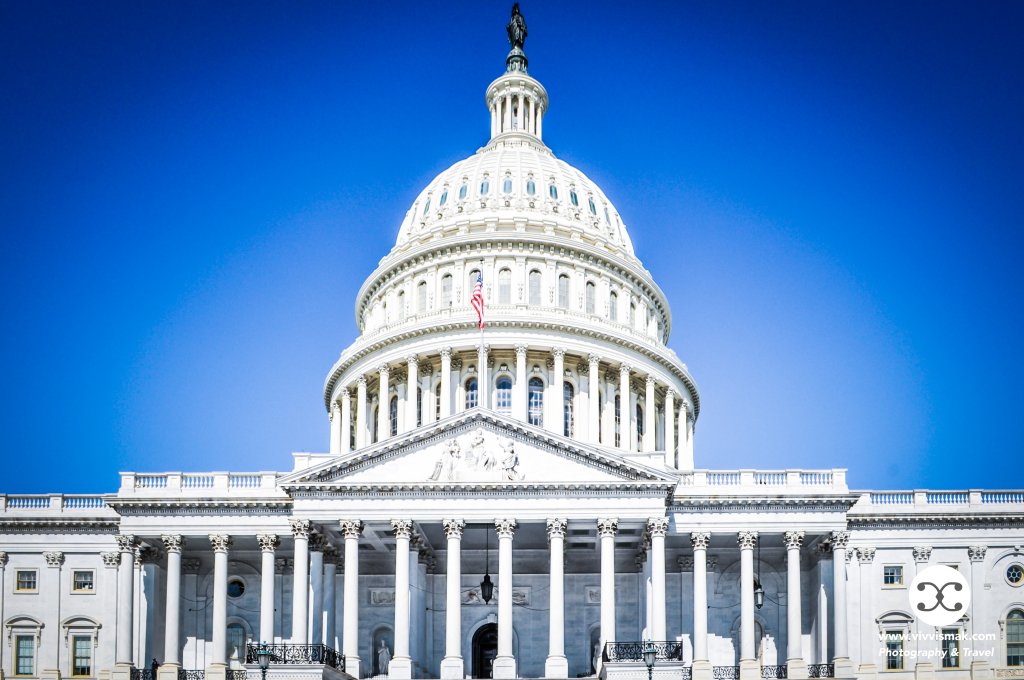For the week ending March 6th
APPROVING $8.3 BILLION TO TACKLE CORONAVIRUS: Voting 415 for and two against, the House on March 4 passed a bill (HR 6074) that would appropriate $8.3 billion for public-health initiatives to counter the spread of the coronavirus in the United States while helping the U.S. diplomatic community cope with the epidemic overseas. As emergency spending, the outlay would be added to the national debt. In part, the bill would provide up to $4 billion for developing a vaccine and diagnostic and therapeutic procedures and training caregivers; $2.2 billion for preparedness including the manufacture and delivery of test kits, ventilators and respirators; $950 million for additional state and local preparedness; and unspecified sums for building surge capacity at local hospitals and clinics including community health centers. The bill also would ensure that seniors have access to Medicare-funded telemedicine services and subsidize billions of dollars in low-interest loans to help small businesses cope with economic losses resulting from the coronavirus outbreak. Republicans Andy Biggs of Arizona and Ken Buck of Colorado were the members voting against the bill.
A yes vote was to send the bill to the Senate.
YES: Deb Haaland, D-1, Xochitl Torres Small, D-2, Ben Ray Luján, D-3
ADDING AIRPORT SECURITY TO CIVIL SERVICE: Voting 230 for and 171 against, the House on March 5 passed a bill (HR 1140) that would include Transportation Security Administration (TSA) employees in the civil service personnel system while granting them full collective bargaining rights, paid medical and family leave, the right to appeal disciplinary actions to an independent panel and other benefits and job protections available to nearly all other federal civilian employees. The TSA was established in the wake of 9/11, and most of its 45,000 employees work as passenger screeners at airports. TSA pay levels and benefits, which are set by the agency administrator rather than “Schedule 5” civil service rules, lag behind those for other federal employees, resulting in a workforce with high turnover and low morale. But defenders say current personnel rules enable the agency to adapt quickly to changing national-security threats. Although TSA workers are represented by the American Federation of Government Employees (AFGE), their collective-bargaining rights have been restricted by Congress.
A yes vote was to send the bill to the Senate.
YES: Haaland, Torres Small, Luján
BARRING SEXUAL PREDATORS FROM AIRPORT SCREENING: Voting 227 for and 175 against, the House on March 5 added Republican-sponsored language to HR 1140 (above) that would prohibit the Transportation Security Administration (TSA) from hiring workers with criminal histories including crimes related to terrorism and sexual misconduct. Critics said civil service hiring rules already would disqualify such individuals from TSA employment.
A yes vote was in support of the GOP motion.
YES: Torres Small
NO: Haaland, Luján
SENDING CORONAVIRUS PACKAGE TO WHITE HOUSE: Voting 96 for and one against, the Senate on March 5 joined the House (above) in passing a bill (HR 6074) that would appropriate $8.3 billion for emergency funding of federal, state, local and global efforts to combat the coronavirus outbreak. Rand Paul, R-Ky., cast the dissenting vote. In addition to the outlays cited above, the bill provides $1.3 billion for overseas initiatives by the State Department and U.S. Agency for International Development, including $264 million to operate consular offices and cover evacuation costs; $435 million in contributions to global health funds; $300 million for international humanitarian aid; $250 million for economic and security measures in countries destabilized by the virus; and $1 million for inspector-general oversight of the government’s overseas coronavirus response.
A yes vote was to send the bill to President Trump, who signed it into law.
YES: Tom Udall, D, Martin Heinrich, D
STARTING DEBATE ON ENERGY BILL: The Senate on March 4 voted, 90 for and four against, to start debate on a bipartisan bill (S 2657) that would marshal government and private resources to upgrade all energy sectors of the U.S. economy. The bill would further the development of technologies for the capture and underground storage of carbon-dioxide emissions from industrial sites and coalburning power plants; promote wind, solar, geothermal and other sources of renewable energy; boost technologies for stockpiling supplies of renewable energy including hydropower; and incentivize “smart” weatherization technologies to improve the energy efficiency of commercial and government buildings and schools. The bill also includes measures to tighten the security of the nation’s power grid, reduce dependence on foreign-supplied rare minerals used to build military weapons and develop a more skilled and better educated energy workforce.
A yes vote was to advance the bill.
YES: Udall, Heinrich
HOUSE Deb Haaland (D) Ben Ray Luján (D) Xochitl Torres Small (D)
SENATE Martin Heinrich (D) Tom Udall (D)
Contact your legislators at the U.S. Capitol
Zip codes: House 20515, Senate 20510
Capitol operator: (202) 224-3121
Courtesy of Voterama In Congress © 2020 Thomas Reports Inc.

